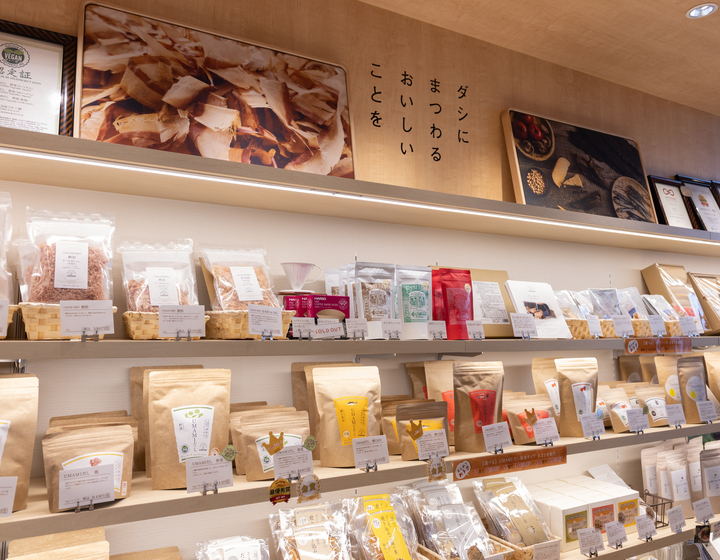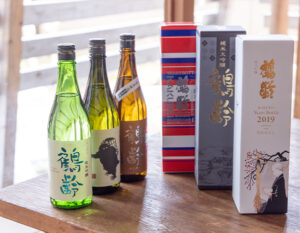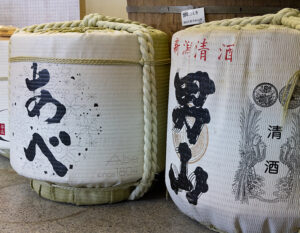Dashi” brings “umami” and “depth” to dishes
Dashi” is an indispensable ingredient in Japanese cuisine. The history of dashi dates back to the Nara period (710-794). The presence of high-quality, delicious dashi brings umami and depth to dishes. Futaba Corporation, founded in 1953 and headquartered in Sanjo City, located in the center of Niigata Prefecture, is a comprehensive dashi manufacturer for professional chefs, supplying dashi packets for commercial use to hotels, inns, and kappo restaurants nationwide. Its distinctive feature is its extract packs, which are packed with umami. At a time when dashi packs did not yet exist, Futaba took a hint from tea and black tea packs and developed a product in which crushed dried bonito flakes are coated with bonito extract and packed in a packet as a natural seasoning. With the creation of these dashi packs, restaurants that made dashi from multiple types of ingredients, such as vegetables and dried foods, only needed to use a set number of dashi packs, thus making the taste more uniform and efficient. Futaba’s dashi is especially appreciated by large hotels and inns with a large number of customers.
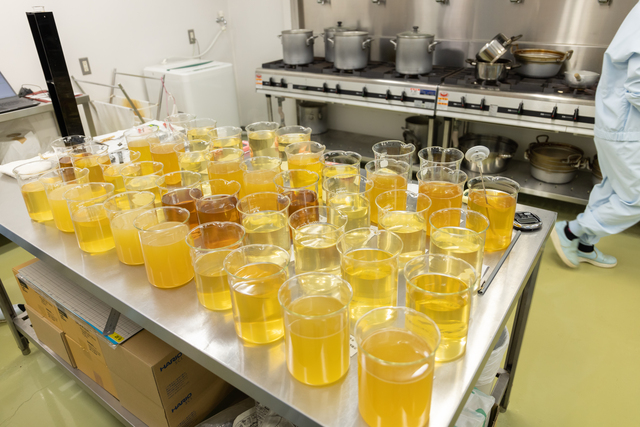
Beliefs of Futaba Corporation
Because dashi is something that is used every day, Futaba is committed to quality and safety with no chemical seasonings or preservatives. The main ingredient is dried bonito, but Futaba also carefully selects and purchases all other kinds of bonito, mackerel, sardine, tuna, horse mackerel, flying fish, kelp, shiitake mushrooms, etc. Sensory tests are conducted, and only products that meet various quality standards in terms of aroma, taste, dashi color, and clarity are shipped to kitchens in various regions. Professional chefs from all over Japan trust us not only because of our blending techniques and consistent quality that always delivers the same consistent taste, but also because of our belief that we do not use any chemical seasonings or food additives.
The Science of Dashi
Cutting-edge research continues to be conducted on the umami of dashi. Futaba’s concept is “the science of dashi. In addition to sensory testing by the human sense of taste, Futaba has established a laboratory and focuses on scientific analysis using analytical instruments. Nutritional components, protein, amino acids, and other parameters are quantified using state-of-the-art equipment, and the company is constantly thinking about what constitutes delicious dashi. To begin with, there are still many things we don’t know about the ingredients that are described as “umami.

In order to reach more people
Through repeated research, new ideas are created and many new products are born. Recently, vegetable dashi, which seals in the umami of onions, carrots, cabbage, and other vegetables, has been well received. The company has established an in-house “agriculture team” and has begun growing its own vegetables. Currently, the company uses a blend of vegetables purchased from suppliers and those harvested in-house, but in the future it intends to increase the ratio of vegetables grown in-house to ensure safety and quality stability, starting with the raw materials. In addition, since the products they offer vary depending on the person to whom the dashi is used, as a comprehensive manufacturer of dashi, they have developed a wide variety of dashi products to date. For example, the daily dining table of the average household requires a well-balanced and complete umami taste. On the other hand, for chefs and professional cooks, dashi that can be designed by the chef to have a unique umami taste that makes the most of the characteristics of the ingredients is needed.
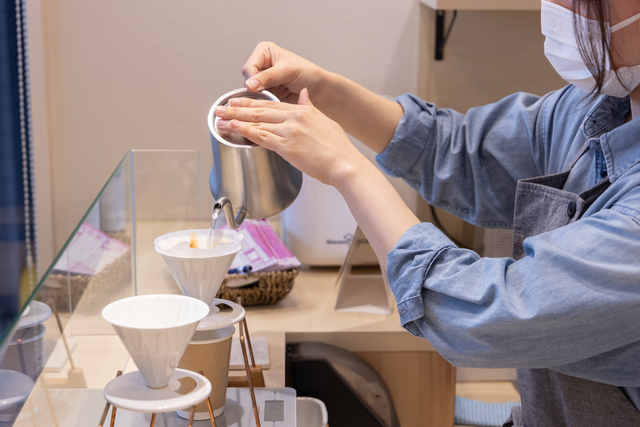
We want to expand the possibilities of dashi so that more people can cook delicious and easy-to-prepare dishes,” says Akira Eguchi, president and representative director. To this end, the company has launched “ON THE UMAMI,” a lifestyle brand for general consumers, offering a lineup of various types of dashi for home use that can be used in Japanese, Western, and Chinese cuisine. The company has begun selling products through its online store and in stores. Traditional Japanese bonito dashi and kelp dashi are popular for use not only in miso soup but also in onigiri (rice balls). Chicken dashi is also useful as a secret ingredient in egg soup and fried rice. Vegetable dashi, which can be used as a veggie broth, also demonstrates its flavor when used to elevate curry, pasta, and other dishes. There is also a wide variety of dashi for baby food, hand-drip dashi that can be drunk like coffee or soup, risotto and pasta sauce, and so on. The company proposes opportunities for people to notice and feel the delicate sensitivities and sensations in the food culture unique to the Japanese people in their daily lives.
Today, Japanese food has been registered as a UNESCO Intangible Cultural Heritage and umami has become known as “MAMI” in the world as a common official language. We look forward to Futaba’s future product development as it continues to expand the possibilities of dashi.



